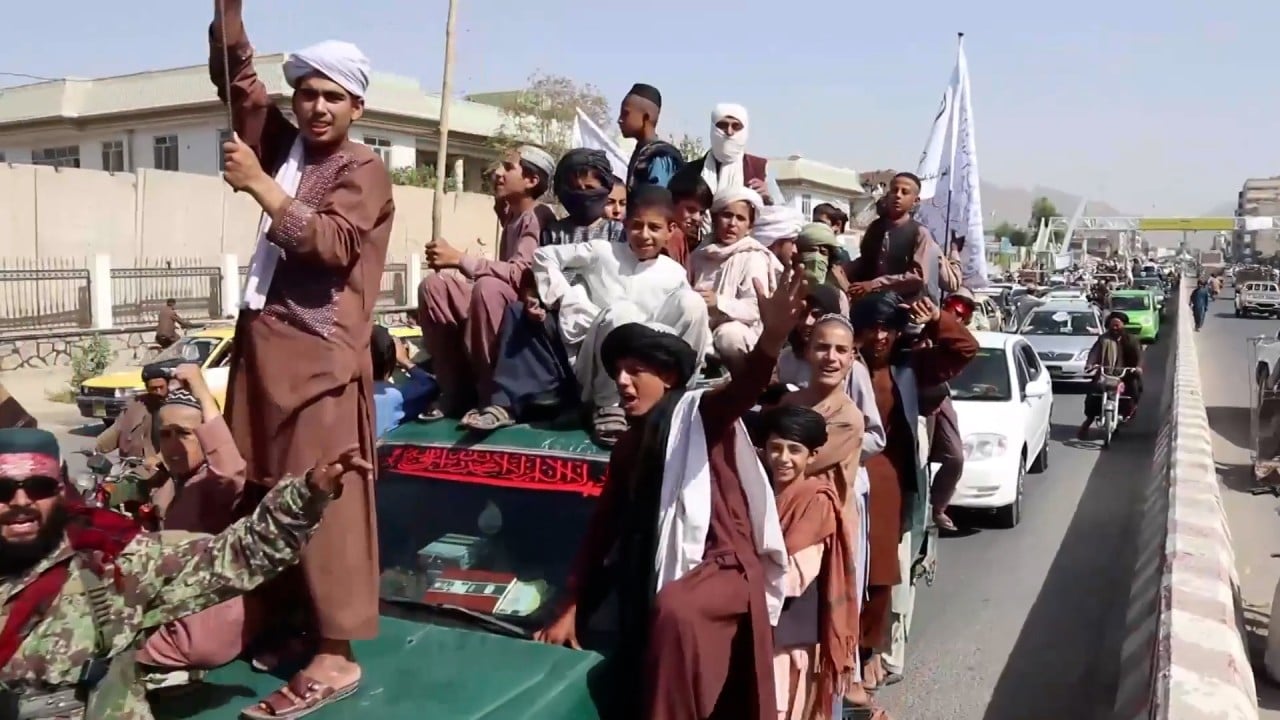
Stop arms sales to ‘non-state actors’, China urges UN treaty partners, in likely rebuke of US
- Chinese envoy for disarmament affairs calls out a country that ‘abuses the arms trade as a political tool’, in apparent reference to US weapons sales to Taiwan
- Caution on illicit arms transfers comes as Taliban take control of US weapons in Afghanistan, deepening worries about militant spillovers in China’s Xinjiang
China has called for increased vigilance against illicit arms transfers and – in an apparent reference to the US – urged all parties to a global arms trade treaty to stop selling weapons to “non-state actors”.

02:00
Pro-Taliban celebrations in Afghanistan after departure of US troops
Saudi Prince Turki Al-Faisal, former head of the kingdom’s intelligence services, blamed the US for its mismanagement.
“I don’t know which word to use, whether incompetence, carelessness, bad management – it was all a combination of those things,” he was quoted by CNBC as saying on Saturday.
The Biden administration has lately scrubbed online detailed reports of military equipment and training provided by the US to Afghan government forces, ostensibly to protect Afghan allies from Taliban retribution.
However, some policy commentators have pointed out that those reports did not identify recipient information and some other official reports that do include such information are still publicly available.
“Geopolitical tensions are escalating, regional conflicts and turbulence fall and rise, terrorism, extremism and organised transnational crimes are yet to be eradicated, and the risks of illicit trade and diversion of conventional arms are on the increase,” Chinese ambassador Li told the Geneva meeting on Monday.
Taliban takeover prompts US fears of a resurgent al-Qaeda
He also registered China’s protest against countries selling weaponry to non-state actors – without explicitly naming the US or Taiwan.
“Some country, in particular, abuses the arms trade as a political tool and flagrantly interferes in the internal affairs of other countries through means including arms sales to non-state actors, which undermines international and regional peace and stability,” Li said.

04:18
Taliban says it will no longer allow the evacuation of Afghans as shots fired at Kabul airport
“Some country, out of its own interest, constantly breaks its commitments through relaxing its arms export control policies and even revoking its signature to the ATT, which undermines multilateral efforts in regulating conventional arms trade by the international community,” Li said.
The ATT, which took effect in 2014, aims to regulate international trade in conventional weapons for the sake of promoting international and regional peace. China joined the multilateral group last year.
The US was the world’s largest exporter of major arms between 2016 and 2020, followed by China in fifth place, accounting for 37 per cent and 5.2 per cent, respectively, of such transfers. China was also the fifth largest importer of major arms during the period, with Russia its main supplier, according to a Stockholm International Peace Research Institute report released in March.

